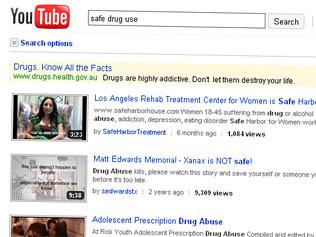Internet filtering scope too broad, says Google
SOME people might be surprised to hear what could be banned by web filtering, says Google exec.

THE kind of material which could be banned under the Rudd Government's internet filter might surprise people, says a Google executive.
"There's lots of it on YouTube," said Google Australia's head of policy Iarla Flynn during a public debate at the University of Sydney this week.
The Government says its internet filter will help prevent access to material which is refused classification. That may include anything from child abuse material to information on drug use or euthanasia.
Mr Flynn said the category had too many "grey areas".
"There's lots of material on YouTube which would be described as refused classification. That might surprise some people," he said.
"I think generally people's impression of YouTube would be that it's not the place to find really bad stuff.
"But the problem with the scope of refused classification is that there's lots of grey areas."
Mr Flynn used harm minimisation videos for drug users as an example of the kind of material that could be banned.
"If you go on YouTube or in fact the internet generally, you'll find lots of public health authorities and charities and NGOs who want to use the internet to communicate with people who, unfortunately, are using drugs," he said.
"They're basically saying: 'If you're doing this, please try and do it safely so you don't injure yourself further.' There's loads of that material on YouTube.
"That's just one example that I think people might not expect would fall within the scope of this filter, but we believe would."
'We'll wait for the legislation'
Mr Flynn told news.com.au Google would wait until more details of the filtering plan were revealed before deciding whether to stop Australians from watching refused classification videos on YouTube in line with the Government's policy.
"It's difficult to give an absolute answer when even draft legislation has not been released," he said.
"But like any law-abiding company, we would consider a request to remove material in the light of what a law actually said."
YouTube presents a problem for the Government's filtering plan because of its popularity. To filter it in the same way as other websites could slow down internet speeds because of the amount of traffic involved.
Earlier this year media reports claimed Google had refused a Government request for the company to enforce its filtering policy internally.
"RC (refused classification) includes the grey realms of material instructing in any crime from graffiti to politically controversial crimes such as euthanasia, and exposing these topics to public debate is vital for democracy," Mr Flynn was quoted as saying at the time.
More Coverage
The Government is expected to introduce its filtering legislation by the end of the year.
Shadow communications minister Tony Smith this week said the amount of time it was taking to come up with the legislation proved the plan was "highly complex and problematic".
"The Coalition has always been sceptical that Labor's mandatory ISP filtering plan could actually be workable or effective," he said.

